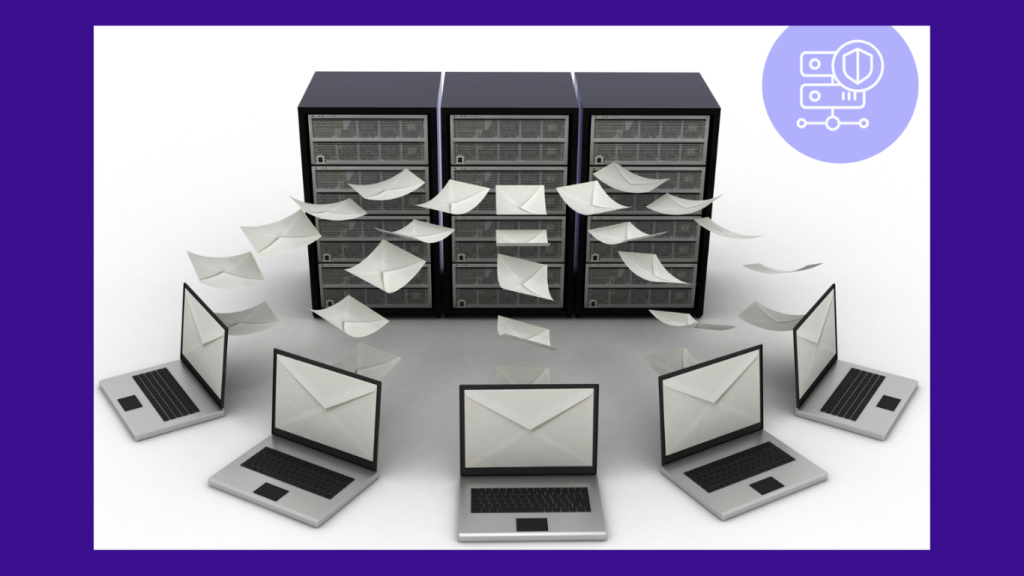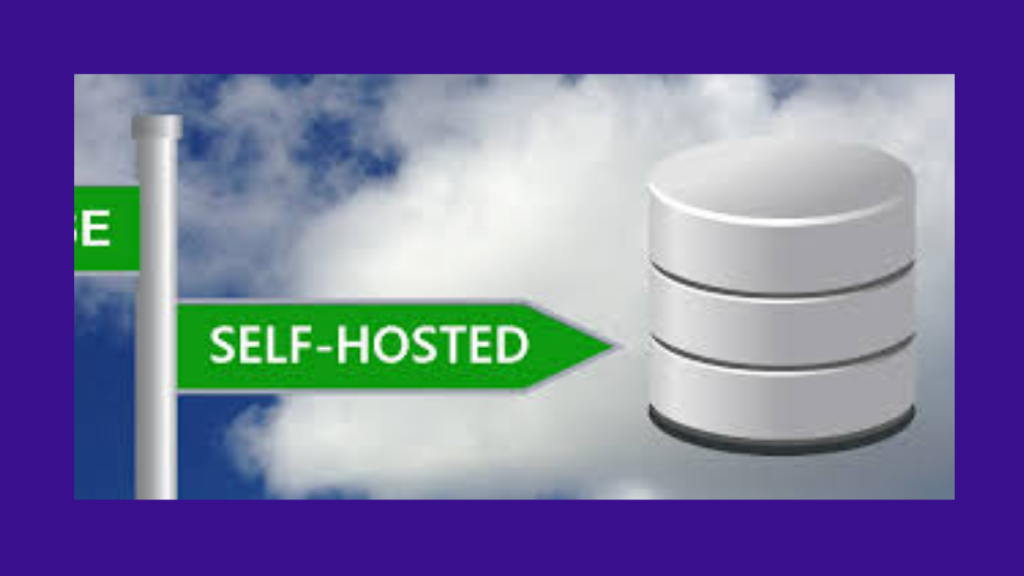Table of Contents
In today’s digital age, email remains a cornerstone of communication for individuals and businesses. While traditional email hosting services offer convenience, self-hosting your email server provides unparalleled control, privacy, and customization. By taking charge of your email infrastructure, you can tailor it to your needs, ensuring optimal performance and security.
What Are Self-Hosted Email Servers?
A self-hosted email server is a server you own and manage dedicated to handling your email services. Unlike traditional email hosting, where you rent space on a shared server, self-hosting gives you complete control over your email environment. You can install and configure your preferred email server software, manage user accounts, and implement security measures.

Pros and Cons of Self-Hosting Email
| Pros | Cons |
| Increased Control: You have full authority over your email system, allowing you to customize settings, add or remove users, and implement security measures as needed. | Technical Complexity: Self-hosting requires technical expertise to set up, configure, and maintain the server. |
| Enhanced Privacy: By self-hosting, you can protect your sensitive email data from potential breaches and data leaks. | Higher Costs: Initial setup and ongoing maintenance expenses can be higher than traditional email hosting. |
| Improved Performance: Dedicated resources and optimized configurations can lead to faster email delivery and reduced latency. | Increased Responsibility: You are responsible for server security, updates, and troubleshooting, which can be time-consuming. |
| Customization: You can customize your email system to meet your specific requirements, whether by adding custom domains, setting up complex filters, or integrating with other services. |
Choosing the Right Self-Hosted Email Server
When selecting a self-hosted email server, consider the following factors:
Scalability: Ensure the server can handle your current and future email needs, including user accounts and storage requirements.
Security: Prioritize robust security features to protect your email data from unauthorized access and cyber threats.
Ease of Use: Choose a user-friendly interface that simplifies administration tasks and minimizes technical hurdles.
Cost: Evaluate the initial setup costs, ongoing maintenance fees, and potential licensing expenses.
Customization Options: Assess the level of customization available, such as domain-specific email addresses, custom filters, and integration with other services.
7 Best Self-Hosted Email Servers

Now, let’s explore some of the top self-hosted email server options:
Postfix
Postfix is a powerful and flexible mail transfer agent (MTA) that offers excellent performance and security. Due to its modular architecture and extensive customization options, it’s widely used by system administrators and developers.
Key Features
- High performance and scalability
- Robust security features, including spam filtering and virus scanning
- Customizable configuration options
- Extensive documentation and community support
Dovecot
Dovecot is a popular IMAP and POP3 server that provides efficient and secure email storage and retrieval. It’s often paired with Postfix to create a robust email server solution.
Key Features
- Fast and reliable email access
- Supports various authentication methods, including password-based and key-based authentication
- Advanced features like virtual users and quota management
- Seamless integration with Postfix
Exim
Exim is a versatile MTA that offers many features, including spam filtering, virus scanning, and content filtering. It’s known for its flexibility and customization options.
Key Features
- High performance and scalability
- Robust security features
- Flexible configuration options
- Extensive documentation and community support
iRedMail
iRedMail is an all-in-one email server solution that includes Postfix, Dovecot, and other essential components. It’s easy to install and configure, making it a popular choice for small to medium-sized businesses.
Key Features
- Easy to install and configure
- Includes essential services like webmail, spam filtering, and virus scanning
- Supports virtual domains and user accounts
- Regular security updates and maintenance
This video owner: Rammaay
Mail-in-a-Box
Mail-in-a-Box is a user-friendly email server solution that simplifies the setup process. It’s ideal for those who want to self-host email without the technical complexities.
Key Features
- Easy to install and configure
- Includes webmail, spam filtering, and virus scanning
- Supports multiple domains and user accounts
- Regular security updates and maintenance
HMailServer
HMailServer is a high-performance and secure email server offering various features, including spam filtering, virus scanning, and webmail. It’s suitable for both small and large-scale deployments.
Key Features:
- High performance and scalability
- Robust security features
- Easy to configure and manage
- Supports multiple domains and user accounts
Zimbra
Zimbra is a comprehensive email and collaboration suite that offers a web-based interface for email, calendar, contacts, and more. It’s a good choice for businesses that need a full-featured email solution.
Key Features:
- Web-based interface for easy access
- Collaborative features like shared calendars and document editing
- Powerful search and filtering capabilities
- Integration with other productivity tools
Conclusion
Self-hosting your email server offers numerous advantages, including increased control, privacy, and customization. You can create a reliable and secure email infrastructure by carefully considering your needs and choosing the correct self-hosted email server. Remember, while self-hosting requires technical expertise, the benefits often outweigh the challenges.

FAQs
Q: What are the benefits of self-hosting an email server?
A: Self-hosting an email server offers several advantages, including:
- Increased Control: You have complete control over your email system, allowing you to customize settings, add or remove users, and implement security measures as needed.
- Enhanced Privacy: By self-hosting, you can protect your sensitive email data from potential breaches and data leaks.
- Improved Performance: Dedicated resources and optimized configurations can lead to faster email delivery and reduced latency.
- Customization: You can customize your email system to meet your specific requirements, whether by adding custom domains, setting up complex filters, or integrating with other services.
Q: What are the drawbacks of self-hosting an email server?
A: Self-hosting an email server also has some drawbacks:
- Technical Complexity: Self-hosting requires technical expertise to set up, configure, and maintain the server.
- Higher Costs: Initial setup and ongoing maintenance expenses can be higher than traditional email hosting.
- Increased Responsibility: You are responsible for server security, updates, and troubleshooting, which can be time-consuming.
Q: How do I choose the correct self-hosted email server?
A: When selecting a self-hosted email server, consider the following factors:
- Scalability: Ensure the server can handle your current and future email needs, including user accounts and storage requirements.
- Security: Prioritize robust security features to protect your email data from unauthorized access and cyber threats.
- Ease of Use: Choose a user-friendly interface that simplifies administration tasks and minimizes technical hurdles.
- Cost: Evaluate the initial setup costs, ongoing maintenance fees, and potential licensing expenses.
- Customization Options: Assess the level of customization available, such as domain-specific email addresses, custom filters, and integration with other services.
Q: Is a self-hosting email server suitable for everyone?
A: While self-hosting offers significant benefits, it’s only suitable for some. Traditional email hosting might be a better option if you lack technical expertise or prefer a hassle-free solution. However, self-hosting can be rewarding if you value control, privacy, and customization.
Q: Can I migrate my email accounts to a self-hosted email server?
A: You can migrate your email accounts to a self-hosted email server. The migration process can vary depending on the email server software you choose and the complexity of your current setup. You should back up your email data before proceeding with the migration.
Q: How do I ensure the security of my self-hosted email server?
A: To ensure the security of your self-hosted email server, consider the following best practices:
- Strong Passwords: Use strong, unique passwords for all administrative accounts.
- Regular Updates: Keep your server software and operating system up-to-date with the latest security patches.
- Firewall Configuration: Implement a robust firewall to protect your server from unauthorized access.
- Spam and Virus Filtering: Use reliable spam and virus filtering solutions to prevent malicious emails from reaching your inbox.
- Regular Backups: Regularly back up your email data to prevent data loss in case of hardware failures or cyberattacks.